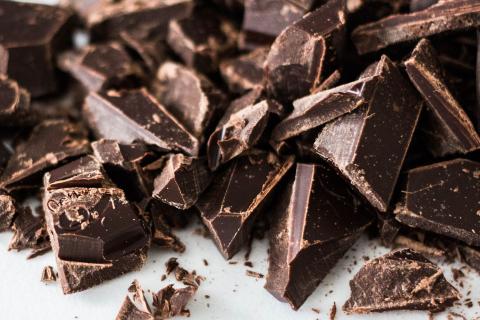Mexicans take food seriously, and given the strong Mayan culinary culture with Spanish and Lebanese influences in the Yucatán, Mérida is an obvious destination to host Latin America’s 50 Best Restaurant 2022. Mexico’s traditional cuisine and milpa agriculture was named Intangible Cultural Heritage of Humanity in 2010, thanks to “its ritual practices, age-old skills, culinary techniques and ancestral community customs and manners”, according to Unesco, and the array of street food, market-based loncherías and contemporary dining restaurants in the Yucatán region, in south east Mexico, are testament to that.
Photo: Courtesy of Yucatán Tourism
Before visiting, get a taste of Mayan food culture by watching the Chef’s Table: BBQ episode featuring barbecue chef Rosalia Chay Chuc, renowned for her cochinita pibil, suckling pig wrapped in banana leaves and slow-cooked in an underground pit.
Once in Yucatán, and with Mérida as your base, you should also visit some of the satellite towns bursting with colours and flavours, many just 90 minutes away from the regional capital. And with its extensive Gulf of Mexico beaches – Playa Progreso is closest to Mérida – and 3,000 cenotes (natural rock pools), Yucatán is ripe for exploring.
The classics
The Mayans left their legacy not only by constructing hundreds of pyramids with ceremonial, religious and political motives, many of which still stand today such as Chichén Itzá, Izamal and Uxmal, but also through their ingredients and culinary techniques.
Photo: Courtesy of Yucatán Tourism
Food staples dating back to the powerful Central American civilisation include maize, beans, chilli and squash. At street food stands and loncherías (mom ‘n’ pop stores), savour traditional specialties such as panuchos (deep-fried tortilla stuffed with refried black beans topped with topped with turkey, lettuce, red onion and tomato) and salbut (similar to panucho but hold the refried frijoles on this puffed deep-fried tortilla). Ingredients that contribute to telling the story of the Yucatán’s gastronomic history – and also make for fantastic souvenirs – include the highly prized melipona honey that’s hand-harvested by syringe, habanero chilies and the less-common Capsicum annuum longum and xcatic.
Yucatecos (people from Yucatán) start their day with a hearty breakfast that would make the eyes water of those who usually sink a full English. Get to Mérida’s Mercado de Santiago market, on Calle 57 in the centre, early and avoid the queues at Taquería La Lupita, a family-run lonchería that’s been serving up delicious tacos stuffed with 14-hour slow-cooked pernil (roasted pork) for 52 years. This and other market loncherías tend only to open till 1pm; the Sunday tradition at La Lupita means breakfasting on suckling pig. In the picturesque historical centre, known for its attractive low-rise saffron-coloured storefronts, check out La Familia, specialists in oven-baked and steamed tamales, and La Terraza Amarilla de San Fernando, known for its tortas de cochinita pibil. For a taste of Lebanese street food, stop by the stand on Calle 56 in the historical centre for excellent kibbes.
Photo: Taquería La Lupita
Fine dining in Mérida
Roberto Solís is the Yucatán’s most revered culinary son, a pioneer in culinary techniques who, while also sticking to the region’s traditions, created the New Yucatecan Cuisine movement, then rolled it out across his six restaurants. You can sample dishes such as Mayan octopus with tomato sauce, avocado, Valladolid sausage, cotija cheese, red onion at Nectar, or textures of refried beans at Huniik. At Tatemar, chef Sara Arnaud applies the tatemado technique to local seafood and meats, cooking them over a direct flame until they are almost charred. At K’u’uk, sample the tasting menu created by Pedro Evia and Eduardo Rukos that exclusively uses Yucatán ingredients; try their sopa de lima. A recent addition to Mérida’s food scene is Antonio Bachour’s Habibi. Given that many Christian Arabs
migrated from the Ottoman empire at the end of the 19th century, the Puerto Rican chef’s inspiration from his own Lebanese roots makes sense in Mérida.
Nearby destinations
Photo: Kinich restaurant
Two picturesque Mayan towns bursting with flavours, a 90-minute drive from Mérida, are Halachó and Izamal. In Izamal, work up an appetite scaling the 35-metre-high Kinich Kamano pyramid (it used to be 60 metres tall), the Yucatán’s largest, then descend to enjoy some traditional Mayan fare at Kinich restaurant. Tortilla makers prepare perfectly circular corn wraps; watch them crafting their art before they’re brought to your table in a gourd.
Photo: Kinich restaurant
Meanwhile, in Halachó, undertake a wonderful immersion experience with Wilson Alonzo, a chef who works extensively with women cooks in communities so as to renew value in their culinary tradition. He takes visitors to Halachó market to buy ingredients such as xicama – a tuber with apple-like texture used in the xec salad with sweet oranges, sour oranges, mandarines, fresh habaneros and coriander – and zapote (the tropical sapodilla fruit), before taking them back to his restaurant, Yaaxché, to hold a Mayan cooking class. Dishes might include the traditional polcan – taken from the Mayan words pol (head) and can (snake) – a traditional Mayan veggie snack made with roasted pumpkin seeds, chives and tender black beans. They are cooked together by placing a hot stone inside the earthenware pot, then covering the mixture to allow the smoky aromas to penetrate the ingredients, which are stuffed inside dough and fried. There’s also sopa de lima, a chicken, tomato and lime soup served with tortilla chips.
Photo: Wilson cooking experience
Mérida bonus track
Two years ago, Massimo Bottura and Lara Gilmore’s Food For Soul foundation opened a community dining room or refettorio in Mérida. You can support this cultural project that shines light on the invisible potential of people, places and food, by getting involved here.









